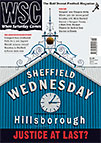 Nick McAleenan asseses how the Independent Panel’s report has raised questions about the original enquiries and questions whether criminal prosecutions will begin
Nick McAleenan asseses how the Independent Panel’s report has raised questions about the original enquiries and questions whether criminal prosecutions will begin
There is a saying that “justice delayed is justice denied”. Since April 15, 1989, there have been numerous investigations and enquiries into what happened at Hillsborough, including a coroner’s inquest, public enquiry and various legal cases.
The Hillsborough Independent Panel’s report provides a new insight into the disaster and the events which followed and it makes for disturbing reading. However, the Liverpool fans caught up in the tragedy have now been vindicated. The report is clearly an important step towards achieving justice for the people who died or were injured at Hillsborough and their families.
The legal and procedural implications of the report are potentially wide ranging and there have been calls for a new public inquest. For this to happen the Attorney General, Dominic Grieve, must apply to the High Court. He could argue that a new inquest is in the public interest because new evidence has come to light.
The original inquest was controversial. The coroner, Stefan Popper, delivered a verdict of accidental death. He decided that by 3.15pm on the day of the disaster the principal cause of death in most cases, asphyxia by crushing, was over and evidence after this time would be inadmissible. However, the Panel found that 41 of the 96 victims potentially could have been saved. Mr Popper’s approach meant that the response of South Yorkshire police and ambulance service was not sufficiently scrutinised.
It would be open to a new inquest to provide a verdict of unlawful killing but it is important to bear in mind that a key objective of an inquest is to establish how a person died. It is not to decide questions of criminal or civil liability. There have also been calls for criminal charges to be brought against those in positions of responsibility. The Panel found that there were myriad problems with the ground and fan safety was compromised at every level. This raises serious questions for the stadium owner, the local council, the police and other emergency services. The stadium did not even have the required safety certificate.
The prosecuting authorities will need to decide whether there is sufficient evidence to charge anyone with a criminal offence, such as manslaughter by gross negligence. The criminal standard of proof is high and the passage of time could muddy the waters. Prosecutions usually take place before, rather than after, public inquests or enquiries to avoid the risk of prejudicing any trial.
The report reveals that South Yorkshire police mounted a cover-up to shield themselves from criticism and shift any blame for the disaster on to the Liverpool fans. This included altering witness statements to remove criticism of the police and smearing the fans in briefings to the media and politicians. In amending the statements, the police effectively treated themselves as the accused with the right to silence and against self-incrimination.
The fact that some witness statements were changed has been in the public domain for some time. Lord Justice Stuart-Smith considered the issue 15 years ago but concluded that the practice had not adversely affected the Taylor inquiry, or any other proceedings. The prosecuting authorities must decide whether there is sufficient evidence to charge anybody with offences such as perverting the course of justice or misconduct in a public office. Any prosecution of police officers is unlikely to be straightforward because the “review and alteration” of witness statements followed legal advice and happened many years ago.
Should there be a new public enquiry? These are designed to identify the causes of a major incident and recommend improvements. The Taylor Report blamed the Hillsborough disaster on policing failures. Taylor recommended sweeping changes to crowd control and safety at football matches and his report led to the introduction of all-seat stadiums at clubs in the top divisions of English football. However, it is clear that Taylor did not get to the bottom of what really happened on the day of the tragedy and in the immediate aftermath.
The government has the power to commission a new public enquiry. Whether it will have the stomach for another high-profile enquiry after the Leveson media circus remains to be seen.
Nick McAleenan is a Media Lawyer at JMW Solicitors LLP
From WSC 309 November 2012